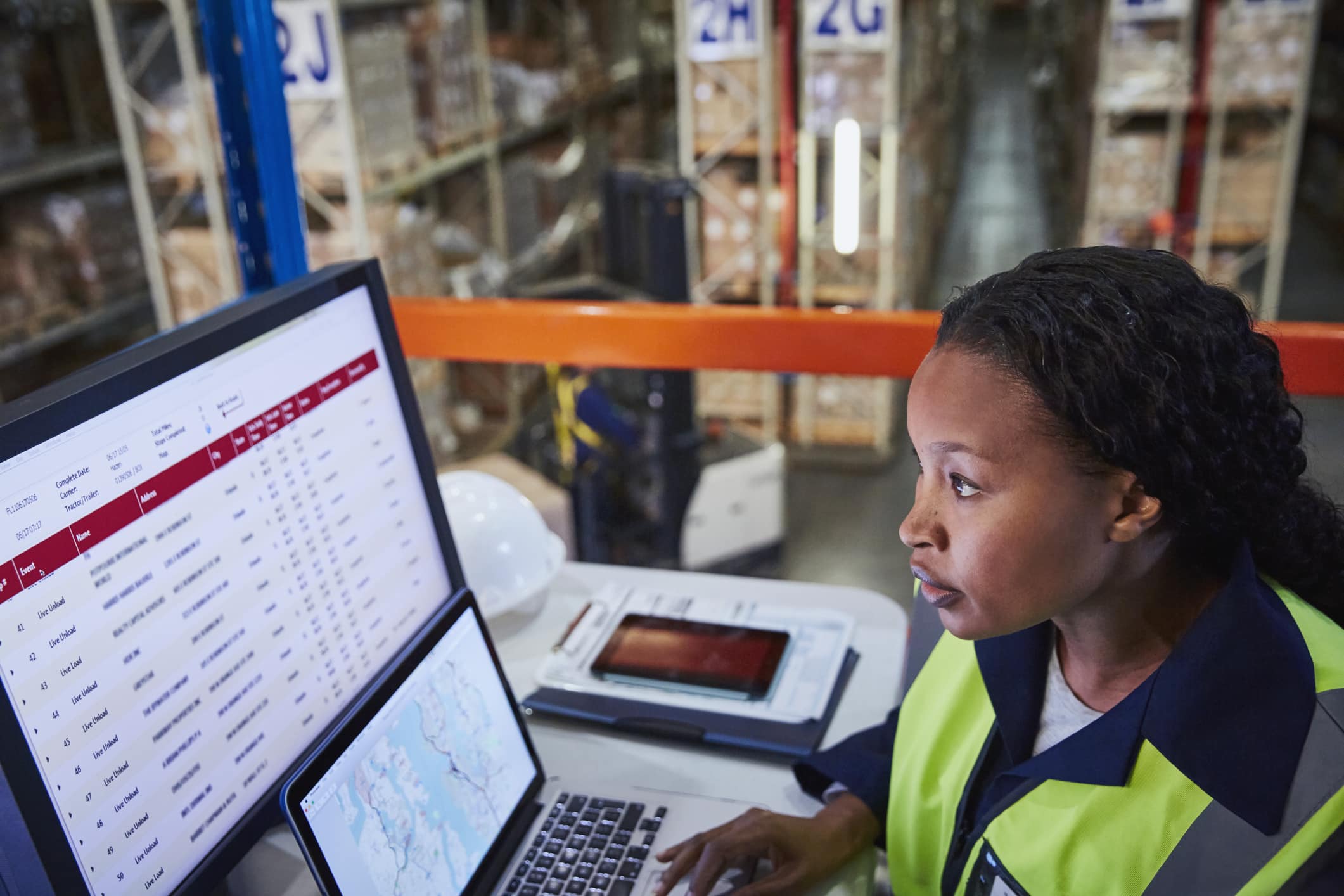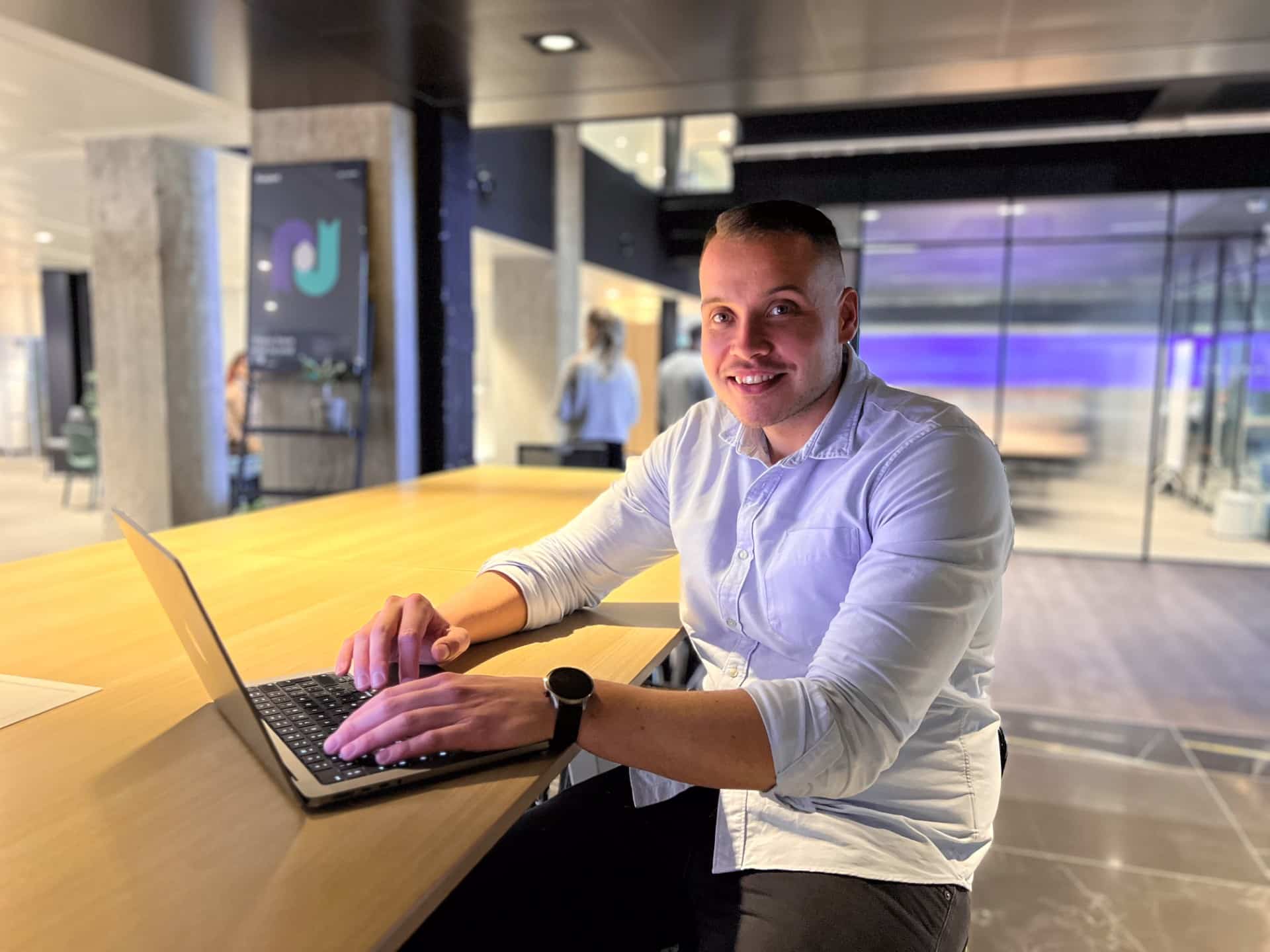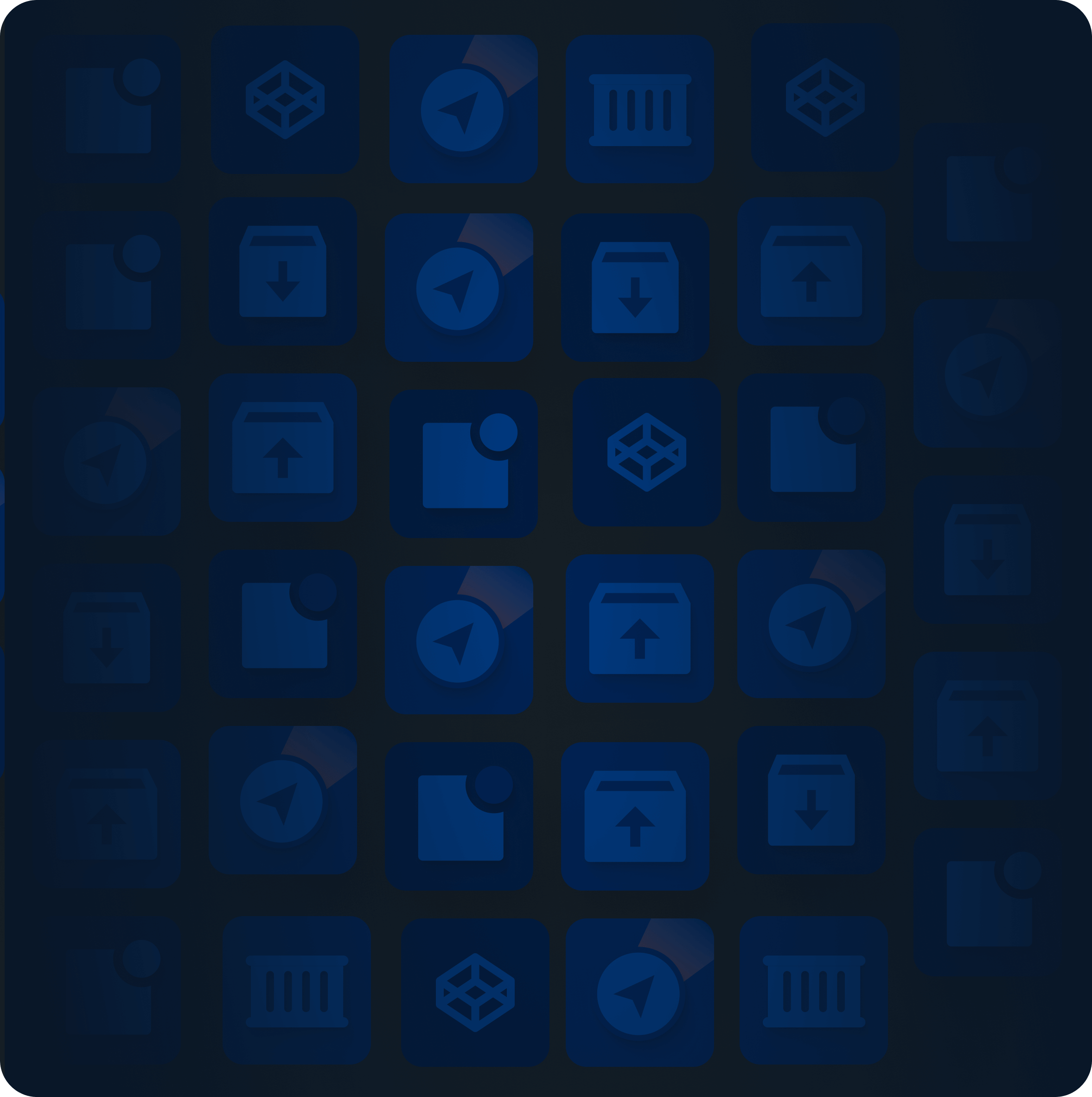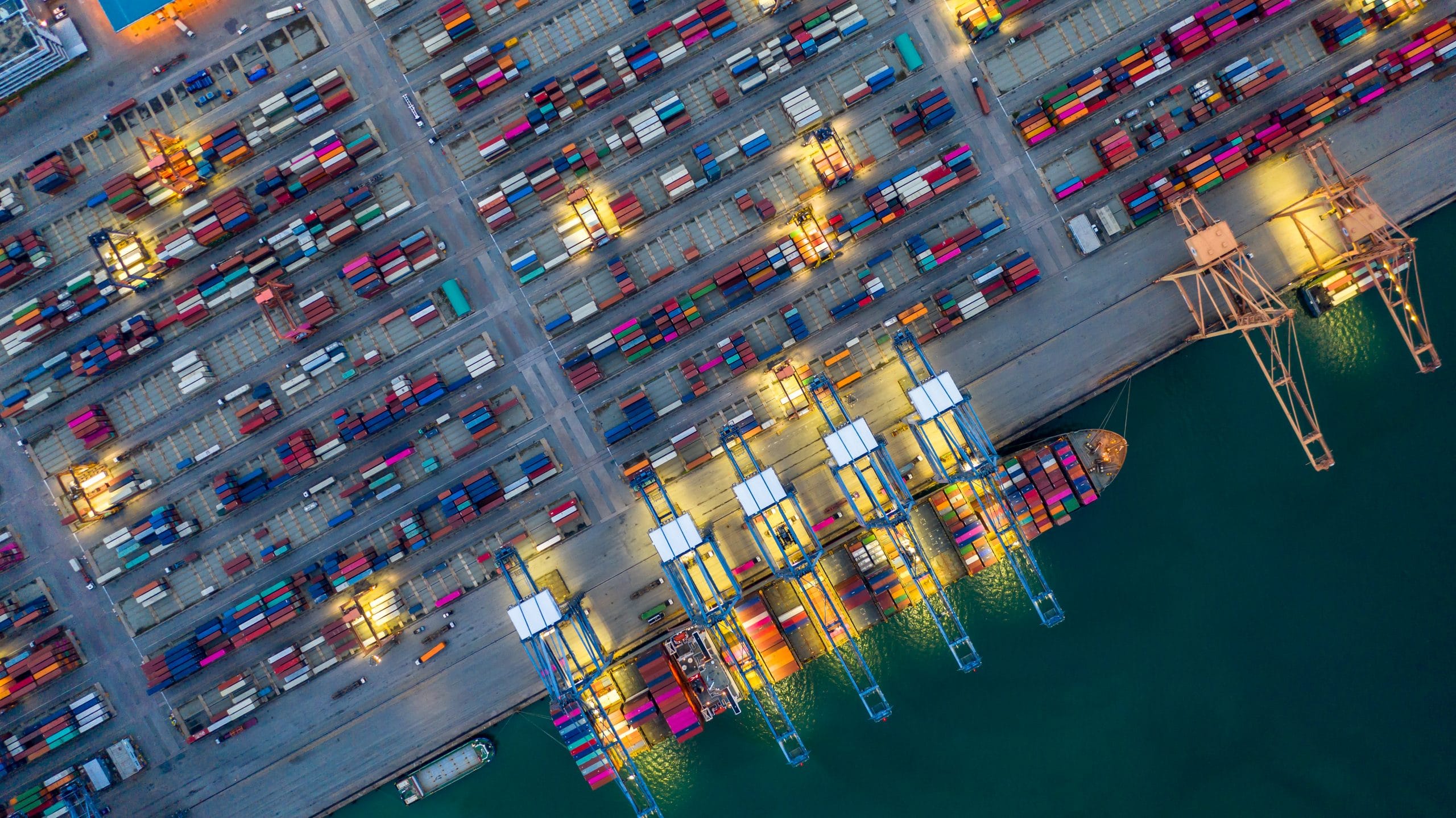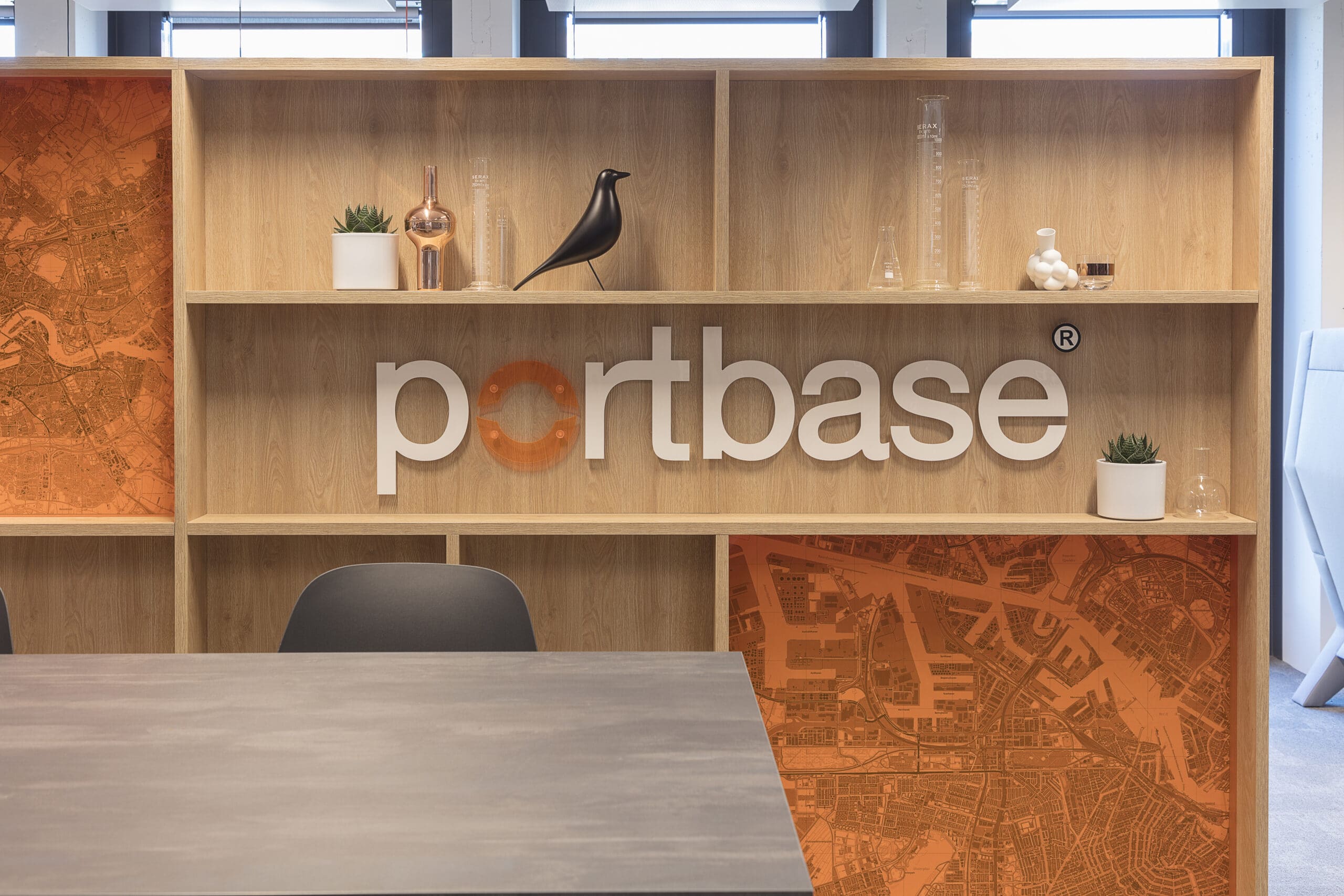Under the Data Fuel programme, Portbase is working with the port community on improvements designed to contribute to smarter and therefore more efficient hinterland transport. On behalf of Transport en Logistiek Nederland (TLN), Jeroen de Rijcke, submarket secretary of the Alliance of Sea Container Carriers (Alliantie Zeecontainervervoerders – AZV), was involved in this ambitious initiative. He sheds light on what has already been achieved and what is still needed to continue making strides when it comes to optimising logistics chains through the use of data in the Dutch ports.
Volumes in Dutch ports have increased substantially in recent years. Moreover, significantly larger oceangoing vessels are creating huge peak loads at the terminals. As a result, the most sought-after time slots fill up quickly and congestion in the ports is the order of the day.
Five areas of focus
With the ambitious Data Fuel programme, Portbase is working with the port community to resolve this undesirable situation in the Dutch ports. There are five key areas of focus:
- Improvement, by increasing the ease of use of Portbase services
- Broadening, by connecting as many (inland) terminals and empty depots as possible to Portbase’s Port Community System (PCS)
- Deepening, by making more information available
- Modernisation, by coming up with innovative solutions
- Confidence, by making logistics chains safer
The implementation of the (new) functionalities required will take place in phases, in consultation with representatives from the port business community and industry bodies.
We need each other
De Rijcke is one of these representatives on behalf of TLN. He says: “Portbase asked us several years ago to come up with a vision for more efficient hinterland transport. We were happy to do that, of course, but it did represent a challenge for us. After all, you are talking about sketching out the future for a large number of container transport companies. That’s a pretty big responsibility.”
By regularly exchanging ideas with his submarket board, discussing the development of the vision at AZV member meetings and talking to a number of TLN-affiliated container transport companies, a good outline emerged of what the vision needed to include.
That meant looking beyond self-interest, De Rijcke stresses. “We also looked at inland shipping and rail, modes that are becoming increasingly important for road hauliers. And we exchanged ideas with other stakeholders in the port, such as the port authority. Because naturally, the AZV has the interests of container transport companies at heart. At the same time, it is clear that we cannot do it alone and desperately need each other to achieve the larger common goal: getting as many goods as possible into the Netherlands and handling them as efficiently as possible in our ports and hinterland.”
Well-defined roadmap
With the vision document in hand, the AZV then went back to Portbase. It laid an important foundation for content and prioritisation within the Data Fuel programme. “It was a really good way of working together”, says De Rijcke looking back. “Portbase handed us the initiative, we came back to them with our vision document which they then used to inform their actions going forwards. The result was a well-defined roadmap, with clear priorities, so that we know exactly which improvements we can expect and when.”
Immediate benefits
A concrete and topical example of one of those improvements is the link between the PCS and inland terminals/empty depots in the hinterland. De Rijcke: “We have been talking to each other about this for quite a long time; it was on the agenda as early as 2019. And now it’s happening, becoming concrete within the Data Fuel programme, based in part on our vision document.”
Over the past two months, five inland terminals/empty depots have been connected to the PCS. This has greatly increased the coverage ratio of the Portbase service Notification Container Hinterland and has done much to establish a standard operating process, which now also extends to the hinterland. De Rijcke: “That’s where we wanted to get to and now we have. Which is great, because there are immediate benefits. It makes the logistics chain even more transparent and helps make our planning even more efficient. And incidentally, it is not just the container transport companies but also the inland terminals and empty depots in question that benefit from being connected. They will experience less congestion at their facilities, for example, and be able to utilise their capacity much better.”
Central place for transparency
What has not yet been delivered, but what De Rijcke is particularly keen to draw attention to, is Port Alert – that is, the first step towards the development of an overall time slot system for the port of Rotterdam. He explains: “More and more terminals and depots are thinking about time slots in order to make the best use of their available capacity and regulate traffic flows on their premises. It also offers advantages for hinterland carriers because when you book a time slot, you know exactly what you can expect.” But unfortunately there are also drawbacks to time slots, De Rijcke points out. “Especially with short time slots, planners tend to book more slots than strictly necessary. They do that purely as a precaution, out of the fear of not being able to get to a terminal or depot on time. This behaviour tends to result in a large number of no-shows, which in turn reduces the available capacity at a terminal or depot. That means schedules have to be continually adjusted and creates waiting times at terminals and depots.”
To prevent this from affecting the number of trips container carriers are able to make per day, and to prevent the port of Rotterdam from potentially losing market share in the long run, an umbrella time slot system would provide a solution, De Rijcke said. “Because that way you create transparency regarding capacity, occupancy and (expected) handling at terminals and depots in the port of Rotterdam in a single, central place. And based on that transparency, planners will be able to make smarter choices.”
The further development of Port Alert is planned from the last quarter of this year.
Strict overseeing role
De Rijcke concludes: “Let’s be clear: at the AZV, we fully support the direction of travel established with Data Fuel. But at the same time, it is clear that the rollout of this programme must not be allowed to negatively impact our day-to-day operations, even temporarily. It is therefore important to manage the implementation optimally and to properly involve all stakeholders at an early stage in the improvements that will be made as part of Data Fuel and everything that will be required to that end. As far as I am concerned, in view of its central, neutral and facilitating position in the port, Portbase should play a very strict overseeing role, obviously coordinating its actions with all those involved, to ensure that this important condition in the implementation process is assured.”
Conversely, says De Rijcke, the chain parties themselves also have a clear responsibility. “Everything hinges on the willingness to share good and relevant data with each other.” De Rijcke therefore hopes that as many parties as possible will sign up for Data Fuel. “After all, efficient container transportation depends on multiple parties. Only together can we achieve optimum results.”

